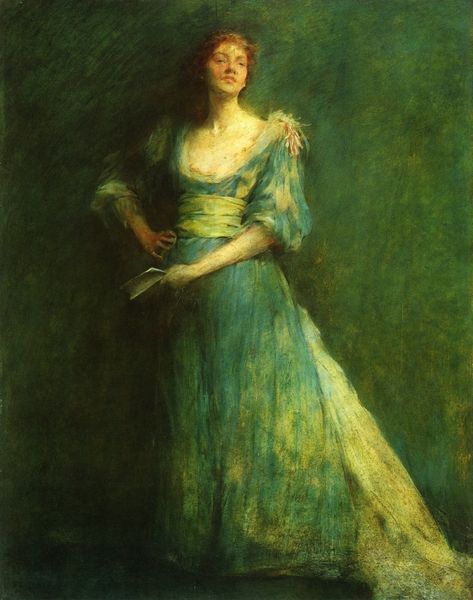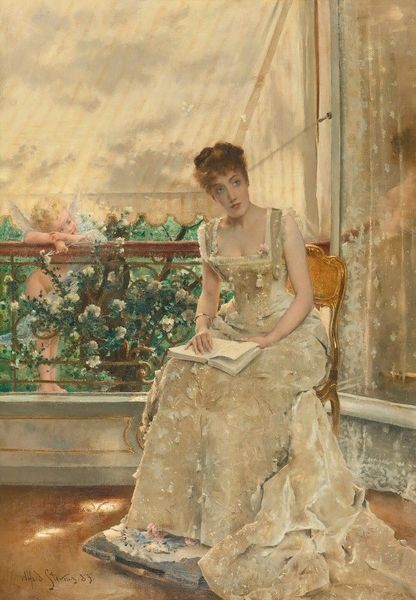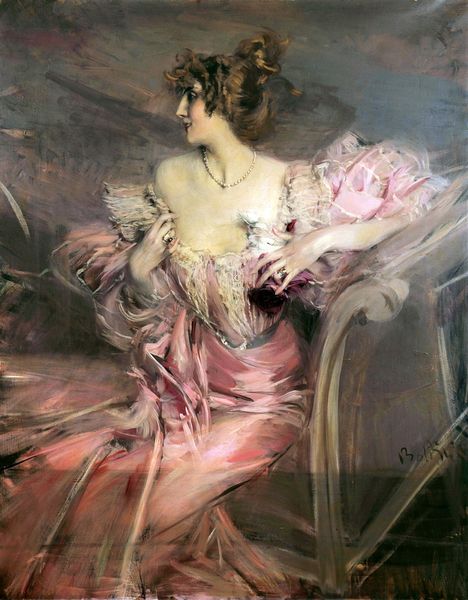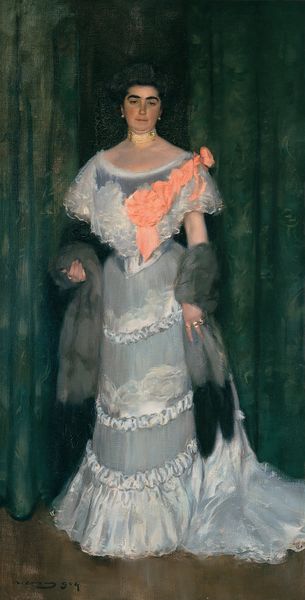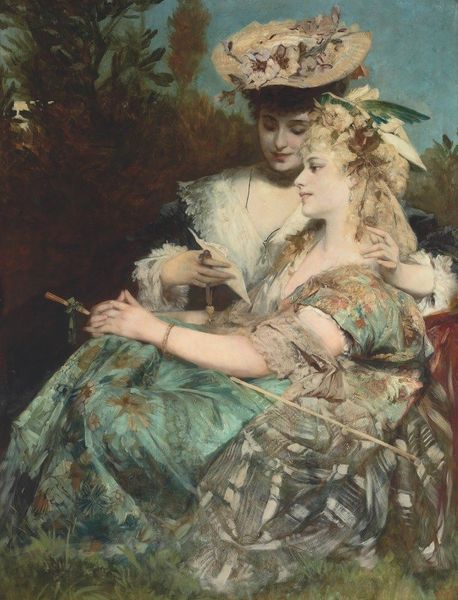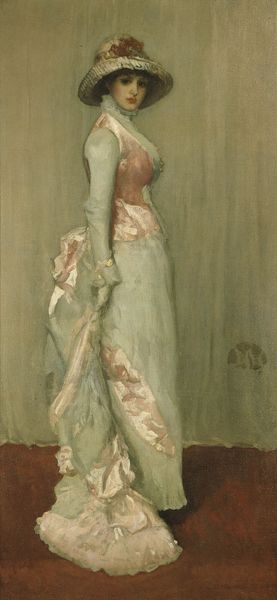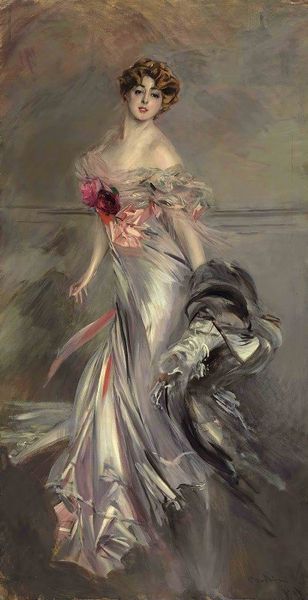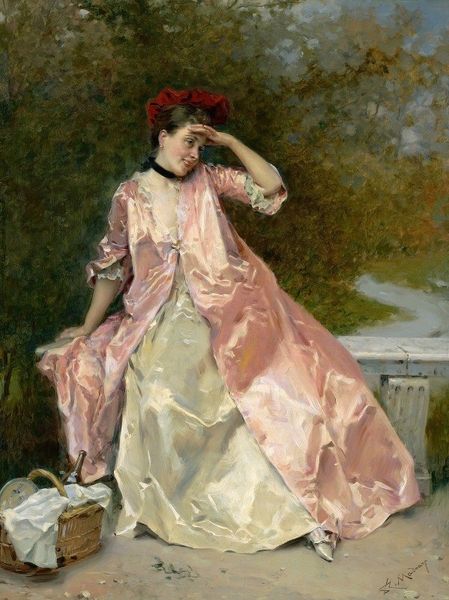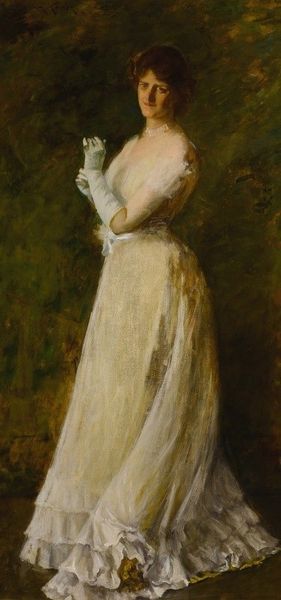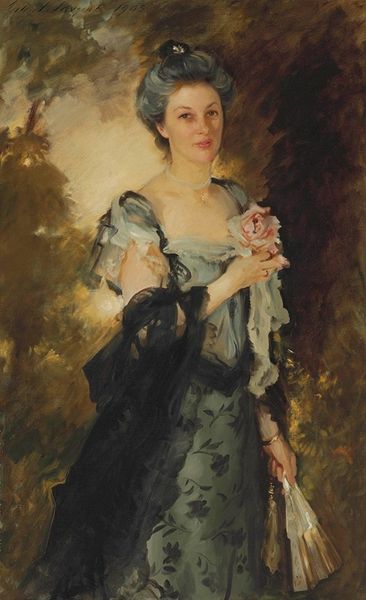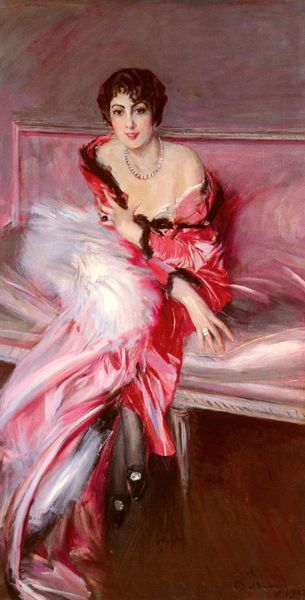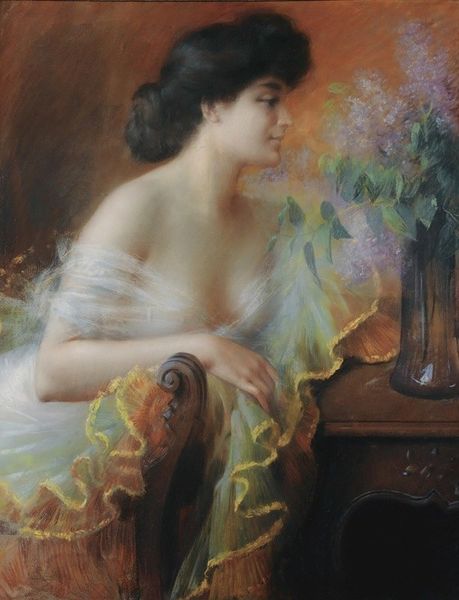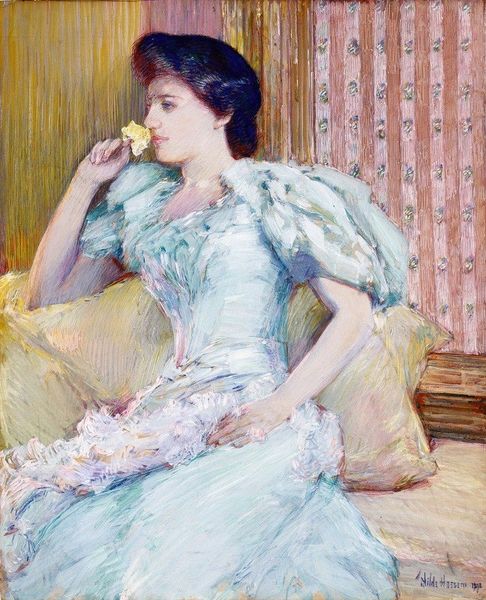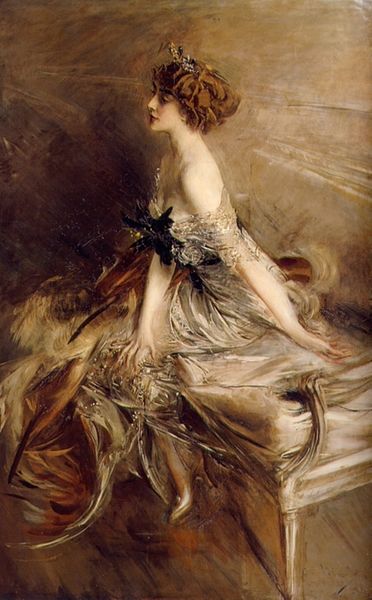
#
figurative
#
acrylic
#
abstract painting
#
possibly oil pastel
#
oil painting
#
neo expressionist
#
acrylic on canvas
#
underpainting
#
painting painterly
#
portrait art
#
digital portrait
Copyright: Public Domain: Artvee
Editor: This is John White Alexander's "Study in Black and Green," likely from 1906. It appears to be an oil painting. The woman’s green striped dress dominates the composition. The material looks almost luminous. What strikes you about it? Curator: Immediately, I see the materiality as central. Think about the dress itself. It wasn’t just “green”; it was dyed, woven, likely mass-produced or perhaps custom-made. That speaks volumes about access and the industrial processes that shaped early 20th-century fashion. The very pigments used were products of a chemical industry in transformation. How do you think these choices impact its meaning? Editor: That’s a great point! I was so focused on the aesthetic aspect of the color, I overlooked the actual process of making that green dye and fabric, especially with the bold stripes. It’s no longer just about beauty, is it? Curator: Precisely. Consider the labor involved. Who sewed this dress? Was it factory workers, or a seamstress? How were they compensated? The painting becomes a record, albeit an idealized one, of those social and economic relationships. It raises questions of class, labor, and consumption. It is not a formal study alone. Editor: I see now! So the materials and the methods of production give the artwork a voice, or rather, many voices. I wouldn't have thought about that focus on the social and historical background. Curator: Yes, each brushstroke, each thread, each hue represents choices informed by societal and economic structures of the time, blurring art and manufacture together in a space. Editor: I definitely have a different perspective now; this changed how I view similar art of the era. Thank you. Curator: Likewise; seeing your reaction, how materiality resonated visually, clarifies avenues for further research.
Comments
No comments
Be the first to comment and join the conversation on the ultimate creative platform.
